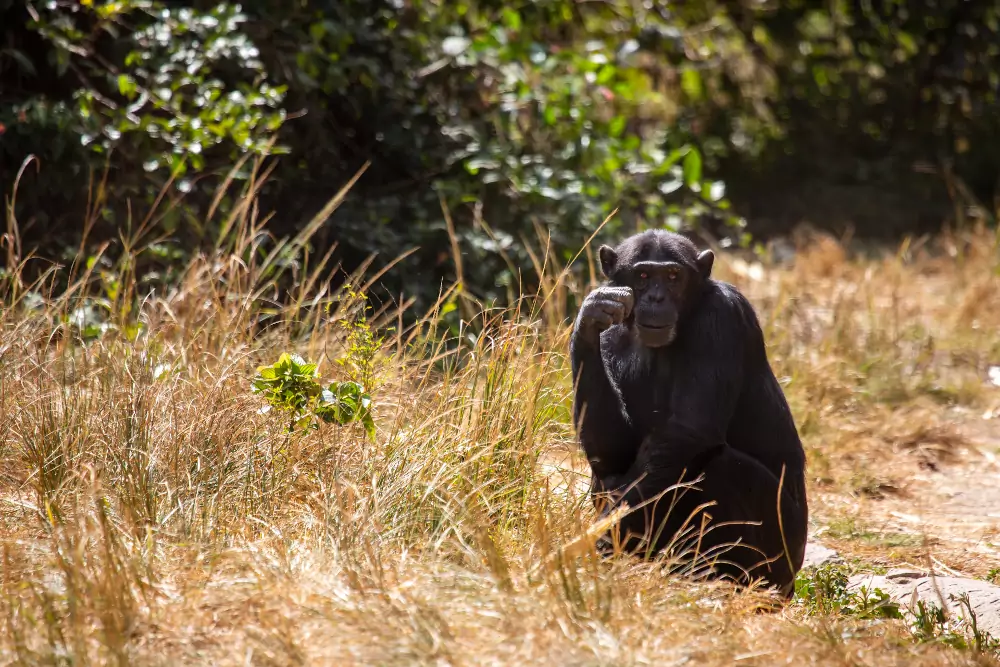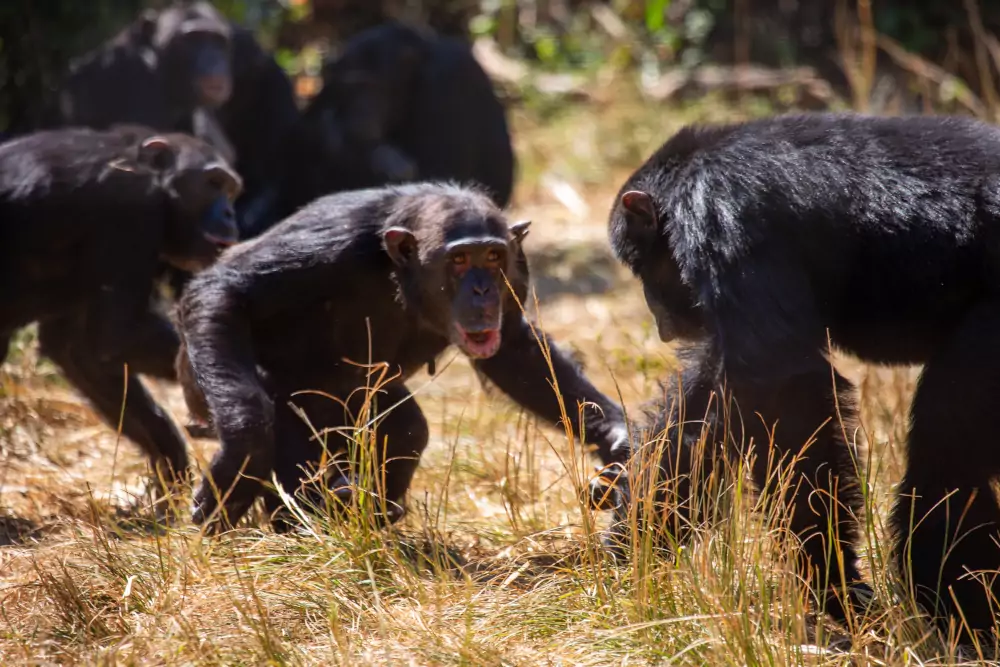Our closest relatives
Chimpanzees and bonobos are the closest living relatives of humans: 98.4% of their genes are identical to those of humans. The range of chimpanzees extends in western equatorial Africa from Senegal to Tanzania and Uganda across a total of 21 countries. Most chimpanzees are at home in tropical rainforests, but also occur in drier , forested savannas. Unlike bonobos and gorillas, chimpanzees can adapt flexibly to different habitats because of their variable diets.

Acutely threatened with extinction
A few hundred years ago, millions of chimpanzees lived in equatorial Africa; today, the population has dropped to about 150,000 wild animals. Chimpanzees are listed as "critically endangered" on the "Red List of Threatened Species." They are listed in Appendix I of the Washington Convention on International Trade in Endangered Species (CITES). Any international commercial trade is therefore prohibited. Nevertheless, the endangered animals continue to be poached and traded on a large scale. Whole groups of chimpanzees are still killed by poachers in order to capture the babies, which are then illegally traded. Many end up in dubious zoos, others are killed for the bushmeat trade, and still others die from pathogens carried by poachers and tourists.
Their habitat is shrinking
Massive deforestation is shrinking tropical rainforests at an alarming rate. The miserable living prospects of the population, as well as the effects of the economic pressure on Africa's natural resources, are decisive for the destruction of the natural habitats of numerous animal species. Together, they represent the main cause of species extinction, especially in Africa's developing countries. In many places, overexploitation of forests and poaching are the only sources of income for local people. Poverty reduction and education are therefore key to protecting wild species.

Sanctuaries for great apes
The first sanctuaries for great apes were established in Africa in the 1970s. They were often based on the commitment of private individuals, for whom taking in individual animals over the years has led to the operation of full-time sanctuaries. Today, 23 of these full-time sanctuaries are united under the umbrella organization PASA (Pan African Sanctuary Alliance). PASA sanctuaries and reserves are pioneers in the field of species conservation. Like Chimfunshi, many of PASA's members have decades of experience in Africa and work closely with local people, governments and local initiatives. Their goal is to bring about long-term change to protect endangered species. All of these sanctuaries rely on donations and volunteer programmes.
